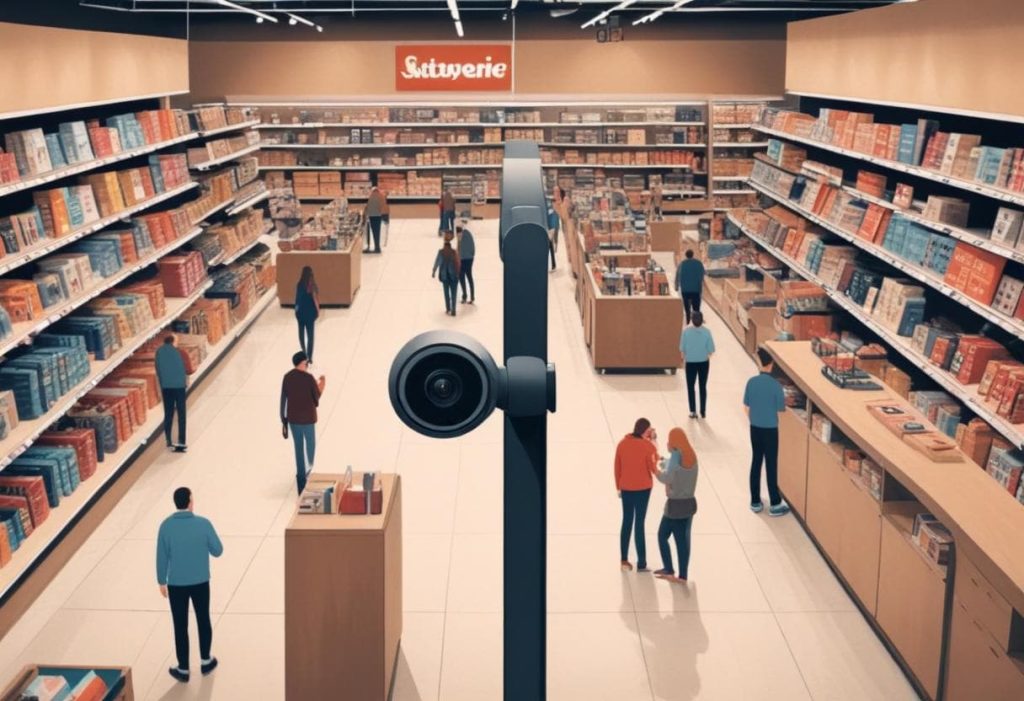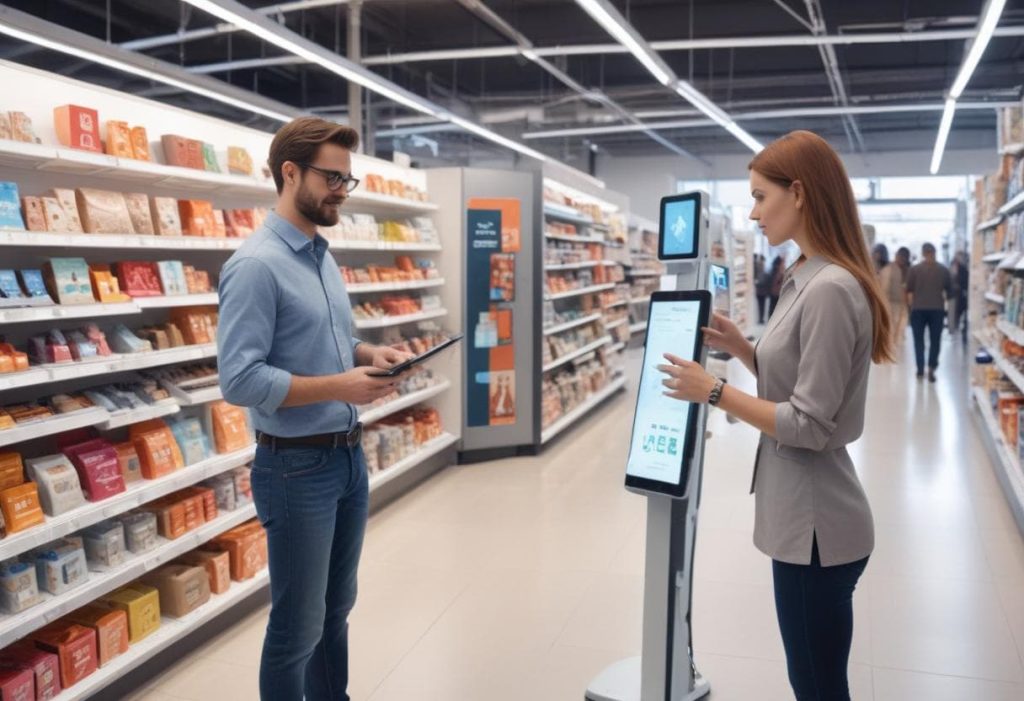
In an ambitious bid to revolutionize the grocery shopping experience, Amazon unveiled its “Just Walk Out” technology, promising a seamless, AI-driven retail environment. However, the reality behind this innovative facade reveals a complex web of human intervention and privacy concerns. Let’s explore the intricacies of Amazon’s Just Walk Out system, its underlying flaws, and the broader implications for the future of AI in retail.
The Promise of Seamless Shopping
Amazon’s Just Walk Out technology was launched with the intention of eliminating the need for checkout lines. Customers could simply pick their items and leave the store, with sensors and cameras handling the rest. This system was seen as a potential game-changer, leveraging advanced AI to streamline the shopping process.
The Human Element Behind AI
Contrary to its high-tech image, Amazon’s system relied heavily on human labor. Reports revealed that over 1,000 contractors in India were tasked with reviewing the footage and data captured by the system, acting as remote cashiers to verify purchases. This hybrid approach undermined the narrative of a fully automated shopping experience and highlighted the limitations of current AI technology in handling complex real-world scenarios autonomously.

The Practical Challenges
Amazon’s vision was hindered by several practical challenges. The system’s dependence on manual data processing resulted in significant delays, with outsourced cashiers taking hours to send back data for customer receipts. The financial burden of maintaining such a labor-intensive system also proved unsustainable, leading Amazon to abandon the project in favor of more traditional technologies like Dash Carts, which employ scanners and screens embedded in shopping carts.

Privacy and Ethical Concerns
Beyond the operational inefficiencies, Just Walk Out raised serious privacy concerns. The technology’s extensive use of cameras and sensors to monitor customer behavior sparked debates about data privacy and surveillance. Critics argued that Amazon’s approach turned shopping into a potential privacy nightmare, with sensitive data being collected and possibly misused.
The Surveillance Technology Oversight Project (STOP) even filed a class action lawsuit against Amazon, accusing the company of secretly selling customer data to third parties, including Starbucks. This lawsuit underscored the ethical dilemmas surrounding data collection and the need for greater transparency and regulation in the use of surveillance technologies in retail.

The Competitive Landscape
Despite its technological innovations, Amazon’s presence in the grocery market remains overshadowed by traditional giants like Walmart, Costco, and Kroger. These competitors have maintained their market dominance through more conventional means, focusing on customer service and competitive pricing rather than unproven technological gimmicks.
Lessons Learned: Navigating the Future of AI in Retail
The rise and fall of Amazon’s Just Walk Out technology offer several valuable lessons for the integration of AI in retail:
- Balancing Automation and Human Oversight
While AI can enhance efficiency, it is crucial to maintain a balance between automation and human oversight. A hybrid model can leverage the strengths of both, ensuring reliability and responsiveness. - Ensuring Data Privacy and Security
Companies must prioritize data privacy and security, adopting transparent practices and stringent safeguards to protect customer information. Building trust is paramount in an increasingly surveillance-conscious society. - Adopting Incremental Innovations
Large-scale innovations should be introduced incrementally to allow for thorough testing and refinement. This approach can mitigate risks and ensure that new technologies are genuinely beneficial before full-scale deployment. - Emphasizing User Experience
User-centric design should guide the development of new technologies. Ensuring that innovations align with customer needs and preferences can enhance adoption and satisfaction. - Maintaining Competitive Flexibility
Flexibility in technological strategies can help companies adapt to changing market conditions and customer expectations. This adaptability is essential for sustaining long-term competitiveness.
Moving Forward: The Role of AI in Retail
Despite the setbacks faced by Amazon’s Just Walk Out technology, the potential for AI in retail remains open. As AI continues to evolve, it can offer numerous benefits, from personalized shopping experiences to optimized supply chain management. However, achieving these benefits requires a thoughtful and measured approach, integrating AI with a keen awareness of its limitations and ethical implications.
The future of AI in retail will likely involve a more nuanced application of technology, where automation is used to enhance, rather than replace, human roles. By learning from the challenges of early implementations like Just Walk Out, the retail industry can develop more robust, ethical, and effective AI-driven solutions.

A Cautious Optimism
Amazon’s experiment with Just Walk Out technology serves as a cautionary tale about the complexities of integrating AI into everyday life. While the promise of seamless, automated shopping remains alluring, the reality underscores the importance of transparency, ethical considerations, and a balanced approach. As the retail industry continues to innovate, these lessons will be crucial in navigating the evolving landscape of AI and ensuring that technological advancements truly enhance the customer experience.

Pek Pongpaet
Helping enterprises and startups achieve their goals through product strategy, world-class user experience design, software engineering and app development.
|
-

“Impekable delivered multiple, fantastic options for us… they genuinely cared about the project and our goals.”
Co-founder, JSwipe, acquired by Tinder
Our Case Studies





